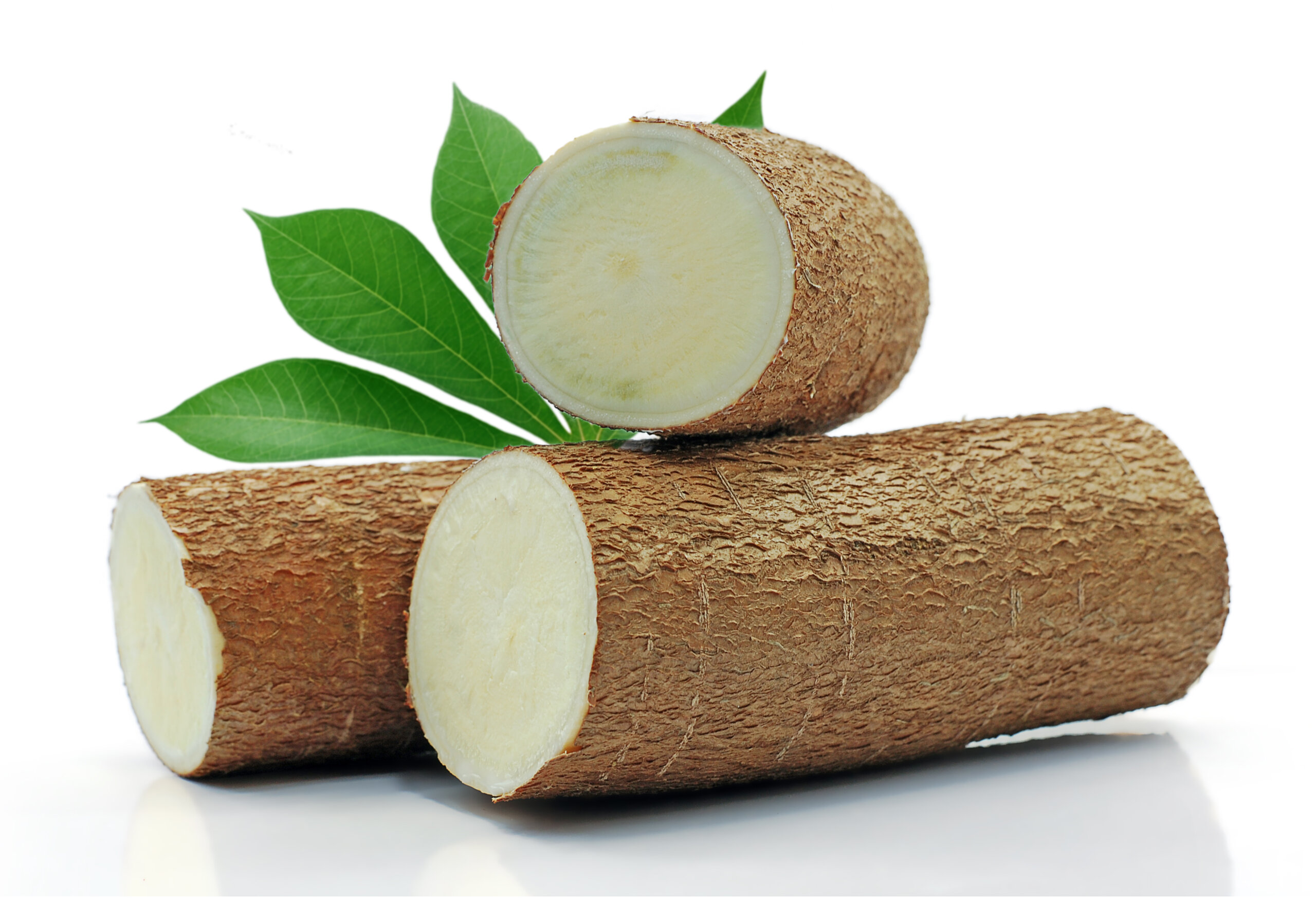Cassava: Nature and Traditional Uses
Cassava flour is gaining momentum as a “go-to” gluten-free, grain-free flour. It is a tuberous plant, native to South America, which has been used for thousands of years as a staple food source. Today Cassava is being researched as a food security crop due to its resilience to climate change, high yield and low cost of production. These days cassava is one of the most cultivated and consumed plants for millions of people and has great social and cultural value in South America, Asia and Africa.
GLUTEN, GRAIN AND NUT-FREE
Cassava flour is naturally gluten, grain and nut-free, making it a very suitable substitution for wheat and other alternative flours. In any recipe that requires wheat flour, cassava can be used at a ratio of 1:1, making baking and cooking gluten-free meals incredibly easy. It is similar to yam, taro, plantains and potato, and is also vegan, vegetarian and paleo!
Cassava flour is the most similar gluten free flour to wheat flour, which is its most valuable characteristic. Unlike other gluten-free flours such as almond or coconut flour, cassava flour is very mild and neutral in flavor. It’s also not grainy or gritty in texture; it is soft and powdery, such as wheat flour that people which is more popular in home cooking.
CASSAVA FLOUR vs TAPIOCA FLOUR
Cassava flour is made from the whole root, peeled, dried and ground. This means it has more dietary fiber than tapioca flour.
Tapioca flour or starch is made from the starch remnants of cassava root, which is obtained after the washing and pulsing process. The moist pulp is pressed, removing the remnants of water and with it the starch. The extracted liquid is evaporated leaving behind a starchy residue – tapioca.
Tapioca is a perfect replacement for cornstarch and can be used in a 1:1 ratio in recipes that require cornstarch as a thickener. Cassava flour can also be used in this instant for thickening soups and sauces.
NUTRIENTS IN CASSAVA:
Cassava is very rich in carbohydrates – about 1 cup of cassava flour (285 g) contains about 110 g of carbohydrates, 5 grams being fiber and about 4.5 being sugar. Cassava flour is also exceptionally rich in Vitamin C – one cup contains just about the recommended daily value for it. Per 100 grams, cassava has double the calories and carbohydrates as sweet potato.
Cassava flour contains resistant starches with similar properties to that of soluble fiber. Resistant starches positively benefit the health of the digestive tract, feed good bacteria, reduce inflammation and bloating as well as promote good digestion.
Tradelinks Cassava supply is fully traceable, with our boots on the ground, we have controlled every detail, from the quality of the root, humidity in the region, starch content, sustainability of supply and many other complex details. As always, quality is our promise to you. To ensure our products stand up to your requirements, we don’t take anything for granted. Each lot is inspected and analysed by a reputable third party laboratory to ensure the product matches or exceeds the specifications agreed to.
[su_divider top=”no” divider_color=”#726c6d” size=”7″ margin=”5″]
[su_button url=”https://www.facebook.com/tradelinksainternational/?view_public_for=105757601162821″ target=”blank” style=”flat” size=”5″ icon=”icon: facebook-f” text_shadow=”0px 0px 0px #000000″] [/su_button] [su_button url=”https://www.linkedin.com/company/tradelink-sa/?viewAsMember=true” target=”blank” style=”flat” size=”5″ icon=”icon: linkedin” text_shadow=”0px 0px 0px #000000″] [/su_button] [su_button url=”https://www.instagram.com/tradelinknz/” target=”blank” style=”flat” size=”5″ icon=”icon: instagram” text_shadow=”0px 0px 0px #000000″] [/su_button] [su_button url=”https://www.youtube.com/channel/UCewEsyFy0Y_1MdjwhsXvT0w” target=”blank” style=”flat” size=”5″ icon=”icon: youtube” text_shadow=”0px 0px 0px #000000″] [/su_button]
[su_youtube_advanced url=”https://www.youtube.com/watch?v=LCEkNZdMi04″ height=”200″ responsive=”no” fs=”no”]



